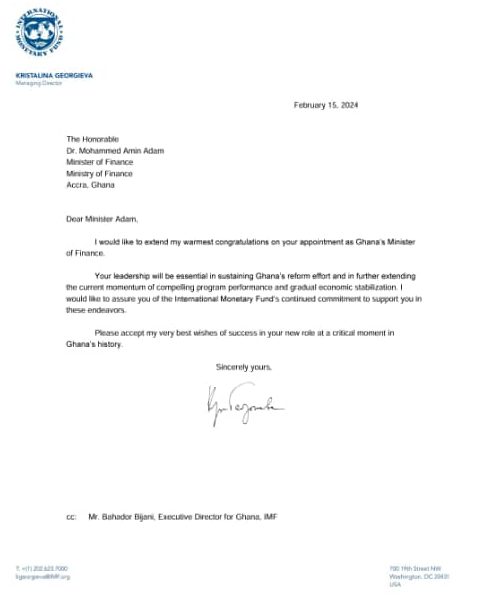
Anyone who has a true understanding of Akan society (I am of necessity limiting the scope of this discussion to what I know about, first-hand) will be baffled by the way our people have allowed galamsey operators to destroy their water-bodies; rivers, streams, farmlands, and even sacred graveyards.
Baffled because Ghana is noted for its expertise in social organisation, which includes self-defence systems that can be summoned into action whenever danger threatens our societies.
For instance, almost everyone in Ghana has heard of one of my favourite traditional festival, the “Deer-hunt” festival of the Effutu people which takes place at Winneba almost every year, usually around May.
At this festival, MACHISMO (the display of manliness) is the order of the day. Two “Asafo” groups vie with each other to go into the bush and capture a LIVE deer with their bare hands!
The Winneba “Asafo” groups are called the TUAFO and the DENTSEFO.
Now, they do not just get up to go into the bush and hunt the deer. Before they leave, the two “companies” engage in mock battles designed to arouse each other into an aggressive mood. They taunt each other psychologically with provocative songs and dances. They display flags; they recount history in a partial, biased manner that applauds the courage and manliness of one company; whilst turning the other into ‘women.’
Sometimes, actual fisticuffs break out before the deer-hunt itself begins.
Then, they go into the bush, where ‘Men’ brave snakes, scorpions and, in the past, leopards, to go and catch deer with their bare hands. They come back to march in the streets, brandishing the live deer on their shoulders, and are applauded with songs and dances by the children and womenfolk of the town. And thousands of spectators, mainly tourists.
Only two things can ever UNITE the two RIVAL “companies”, an attempted invasion of Effutu territory by a hostile force, and the need to destool a chief who has acted against the oath he swore to be faithful to the Effutus.
Once the two “companies” agree on destoolment, after formally adjudicating over charges against their chief, then he is finished.
When the colonialists conquered Ghana, unpopular chiefs tried to manipulate the new foreign rulers to protect them against destoolment by their own people.
But it didn’t work; a chief who had lost the support of his people might be left on his stool.
But he was given a derisory name which has stuck to this day and has been metaphorically applied to unpopular “bosses” everywhere in Akanland, “Simpa Panyin”, that is, a toothless old bulldog!
Although it’s the Dentsefo and Tuafo of Winneba who are best known among the “Asafo” groups of Ghana, there are others who play an equally important role.
The Gas and Krobos, for instance, have “Asafo” groups whose captains bear a name that has actually been appropriated by other groups: “Asafoatse.”
The functions of the “Asafo” are, HOWEVER, IDENTICAL EVERYWHERE, namely, they defend the people against invaders and would-be oppressors who forswear their own oaths of office.
I shall never forget the first time I saw an “Asafo” group in action. I must have been only about four years old when one afternoon; we heard the beating of an unusual drum coming from the chief’s palace. This was called the “Kyer?mu” drum, and it was only beaten during an emergency.
Everyone got excited on hearing the beating of this drum. Men who were eating left their meals uncovered, put on their “war clothing” and ran towards the chief’s palace. Women began to wail as they asked, “What’s happening? What’s happening?” We children were told to go and hide in our bedrooms, lock the doors and not come out!
The entire society went into “war mode!” It turned out that a woman went to her farm but had not returned home by evening. Had she been abducted by kidnappers who had raped her and killed her? Had she been murdered in the bush by a spurned lover? Or a rival? Everyone wondered.
Within about half an hour of the drum sounding, our main street had filled with men, waving cutlasses, cudgels and other offensive weapons above their heads and singing war songs. Of course, we children stole ourselves to come out to watch (against instructions) and were cupped on the ear by our fathers and uncles, when they caught us!).
The men departed for the bush. And the children and the women waited in suspense. After about three hours, we heard the hubbub of their arrival back home.
Quickly, the news went round: the woman (I still remember her name) Maame Afia Mframa, had been killed by the falling branch of a tree during a storm that had broken out that afternoon. (Again, I remember: it was during the Easter season, when strong winds, known as “Yesu Amanehunu Mframa”, often struck our towns and villages.)
(Interestingly, our people managed to find a metaphysical rationale for what had happened: the woman was called “Mframa” [wind]. And “mframa” [the wind] had come for her. It was a pre-arranged thing, and that’s why the “Asafo” had not been able to save her!).
The serious aspect of the matter is that had it been any other contingency than an “act of God”, the Asafo would have been able to save the woman.
Had she been abducted, the men would have used their scouting techniques to detect – from the signs of struggle and the state of the weeds after people had run over them – exactly where they had taken her.
And they would have chased the abductors, till they came upon them. If the abductors were caught, of course, no-one outside the “Asafo” group would know exactly what would have happened to them.
Now, the “Asafo” was so effective because it was organised on a man-to-man basis. A father belonged to an “Asafo” group and once his male children began to grow into men, he took them to “Asafo” meetings and war-games. There is even a song that makes fun of young males who evade “Asafo” activities:
W?wo wo benyin na ?se ?nk?goro Asafo ee
Mmarima mmera oo,
W?wo wo benyin na ?se ?nk?goro Asafo aa
Mmenyin mmera!
Osee yeei,
Mmarima mmra oo
Osee yeei,
Mmenyin mmera!
[If you are born a man and you say you won’t practice Asafo activities, there will come a day when the cry will go forth, “Oseee Yeei”! asking all men to come and gather together! And then you will realise you do not fit in!]
The colonialists, in order to be able to rule us with ease, emasculated our “Asafo” groups. And our own rulers, to whom power was transferred, afraid that Asafo groups would compete with them for power, have not been keen to allow the “Asafo” groups to function and many have become moribund.
This wouldn’t matter if we were living in normal times. But as galamseyers insist on destroying our water-bodies, rivers and streams, it’s time to reorganise the Asafos and allow them to defend the interests of the larger society against the selfish gold-diggers.
If we fail in this duty, generations unborn will come to curse us.
By CAMERON DUODU























Facebook
Twitter
Pinterest
Instagram
Google+
YouTube
LinkedIn
RSS